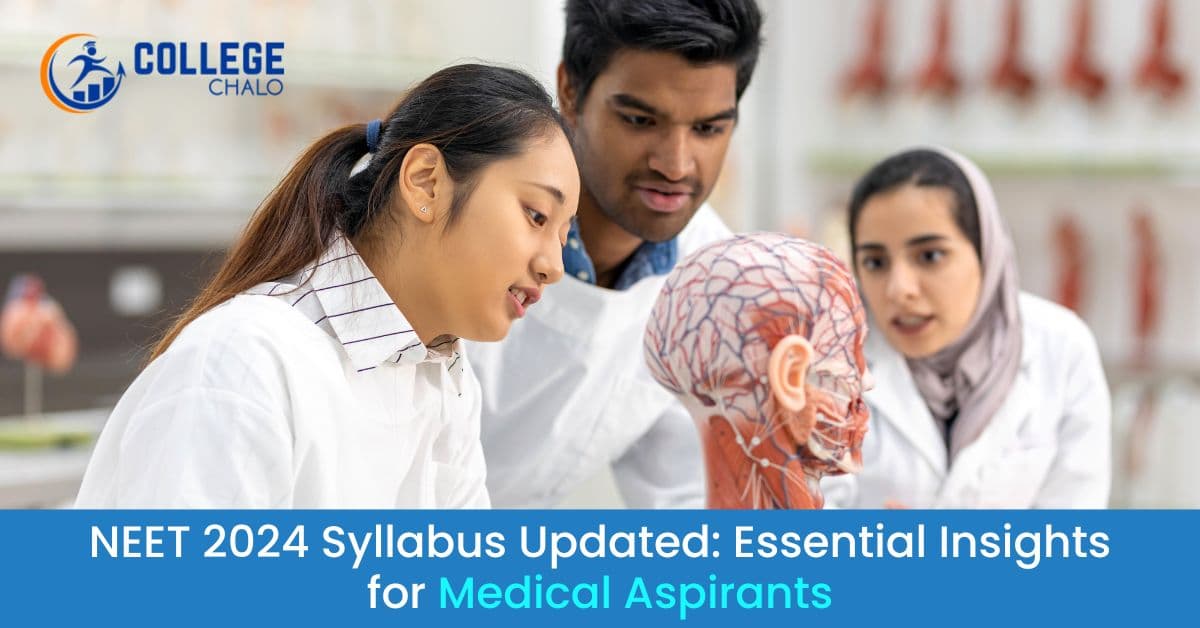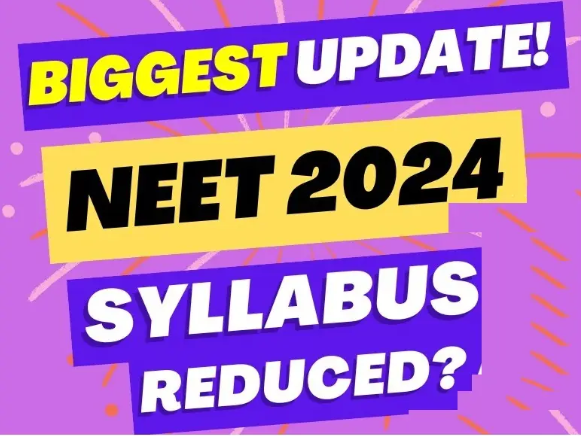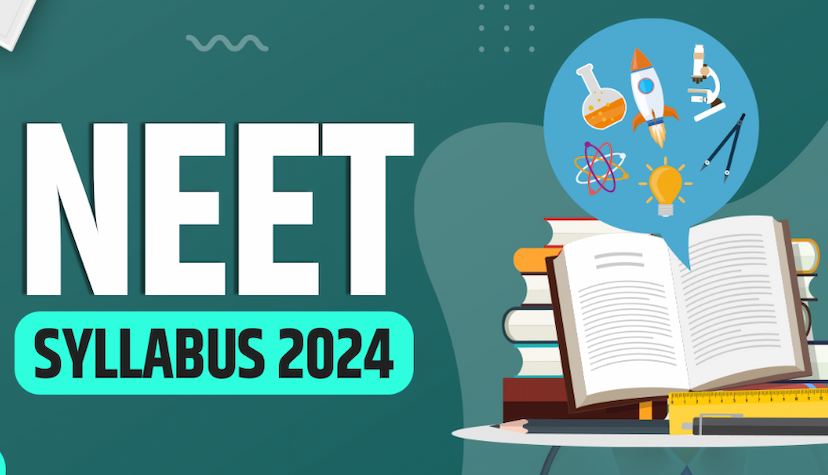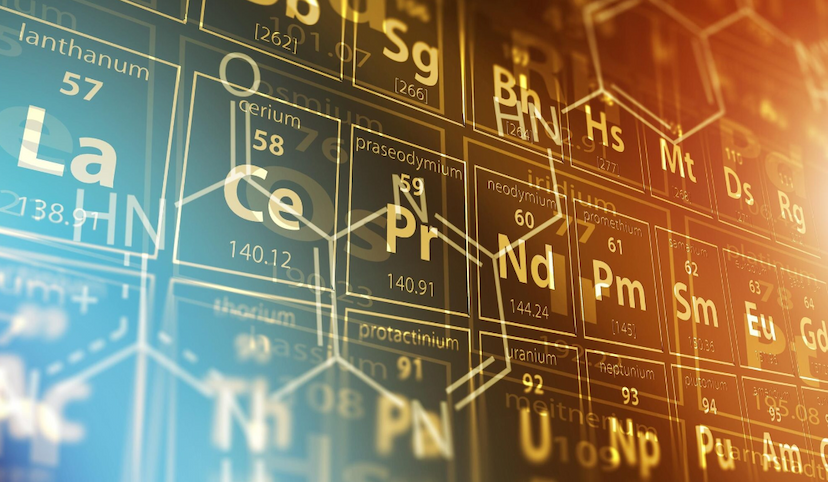NEET 2024 Syllabus: Removals, Additions, and Expert Tips for Success

Welcome to the NEET 2024 Syllabus Guide, where we delve into the nuanced alterations shaping the upcoming medical entrance examination. The National Eligibility cum Entrance Test (NEET) is a crucial examination for aspiring medical professionals in India. The National Medical Commission’s (NMC) recently released syllabus has undergone significant changes in light of the approaching NEET 2024. As NEET evolves, so must the approach of aspirants seeking a career in medicine. This comprehensive guide navigates through the modified syllabus, providing a profound understanding of the changes and offering strategic insights for a successful preparation journey.


Has there been any change in the syllabus for NEET 2024?
Yes, the NEET 2024 syllabus has undergone modifications. The National Medical Commission has revised the syllabus, leading to the removal of certain chapters and the addition of new ones.
What is the syllabus for NEET UG?
The NEET Undergraduate (UG) syllabus covers three main subjects: Physics, Chemistry, and Biology. The syllabus is designed to assess the candidates’ knowledge in these subjects, essential for pursuing medical and dental courses.

Is the NEET syllabus tough?
The difficulty of the NEET syllabus varies for each individual. It is comprehensive and requires a thorough understanding of concepts in Physics, Chemistry, and Biology. Effective preparation, regular practice, and a strategic study plan can help candidates tackle the syllabus more efficiently.
Why has there been a change in the NEET 2024 syllabus?
The need to align the exam with the changing landscape of medical education typically drives syllabus changes in NEET. The modifications aim to ensure that candidates are well-prepared for the challenges of the medical field and reflect the advancements in the respective subjects.


Which Chapters are Removed in NEET 2024 Syllabus?
In each of the three subjects—Physics, Chemistry, and Biology—there have been several chapters removed from the most recent NEET 2024 syllabus that NMC released. Here is a breakdown of the removed chapters:

NEET Chemistry Syllabus 2024: Removed Chapters
Class 11: Removed Chapters

- Some Basic Concepts of Chemistry
- Structure of Atom
- States of Matter: Gases and Liquids
- Hydrogen
- s-Block Elements (Alkali and Alkaline Earth Metals)
- Some p-Block Elements
- Organic Compounds Containing Nitrogen
- Environmental Chemistry
Class 12: Removed Chapters
- Solid State
- Surface Chemistry
- Polymers
- Chemistry in Everyday Life
NEET Biology Syllabus 2024: Removed Chapters from Class 11
- Structural Organization in Animals and Plants
- Plant Physiology
NEET Biology Syllabus 2024: Removed Chapters from Class 12
- Reproduction
- Biology and Human Welfare
- Ecology and Environment
Addition of New Chapters in NEET Syllabus 2024
In addition to the reduction of the NEET 2024 syllabus, certain chapters or topics have been introduced. Let’s explore the new additions in each subject:
NEET Physics Syllabus 2024: New Chapters
Class 11 New Topics
- Kinematics (Resolution of Vector)
- Gravitation (Motion of a satellite, time period, and energy of a satellite)
- Properties of Bulk Matter/Properties of Solids and Liquids (Pressure due to a fluid column; Pascal’s law and its applications. Effect of gravity on fluid pressure)
- Behaviour of Perfect Gas and Kinetic Theory (RMS speed of gas molecules: Degrees of freedom. Avogadro’s number)
Class 12 New Topics
- Magnetic Effects of Current and Magnetism (Effect of temperature on magnetic properties)
- Dual Nature of Matter and Radiation (Dual nature of radiation)
- Experimental Skills (Familiarity with the basic approach and observations of the experiments and activities)
NEET Chemistry Syllabus 2024: New Chapters
New Topics in Unit II: Structure of Atom
Bohr model of a hydrogen atom – its postulates, derivation of the relations for the energy of the electron and radii of the different orbits, limitations of Bohr’s model.
New Topics in Unit IV: Chemical Bonding and Molecular Structure
- Kossel – Lewis approach to chemical bond formation, the concept of ionic and covalent bonds.
- Elementary idea of metallic bonding.
- Fajan’s rule.
New Topics in Unit: Chemical Thermodynamics
- Fundamentals of thermodynamics: System and surroundings, extensive and intensive properties, state functions, types of processes.
- The first law of thermodynamics – Concept of work, heat internal energy and enthalpy, heat capacity, molar heat capacity; Hess’s law of constant heat summation; Enthalpies of bond dissociation, combustion, formation, atomization, sublimation, phase transition, hydration, ionization, and solution.
- The second law of thermodynamics – Spontaneity of processes: ΔS of the universe and ΔG of the system as criteria for spontaneity. Standard Gibbs energy change and equilibrium constant.
New Topics in Unit VII: Redox Reactions and Electrochemistry
- Electrolytic and metallic conduction, conductance and their in electrolytic solutions, molar conductivities variation with concentration: Kohlrausch’s law and its applications.
- Electrochemical cells – Electrolytic and Galvanic cells, different types of electrodes, electrode potentials including standard electrode potential, half-cell and cell reactions, emf of a Galvanic Cell and its measurement: Nernst equation and its applications, Relationship between cell potential and Gibbs’ energy change: Dry cell and lead accumulator, Fuel cells.
New Topics in Unit IV: Chemical Kinetics
- Pressure, collision theory of bimolecular gaseous reactions (no derivation).
New Topics in Unit VIII: d and f Block Elements
- Transition Elements
New Topics in Unit XIII: Purification and Characterisation of Organic Compounds
- Purification – Crystallization. sublimation, distillation, differential extraction, chromatography – principles and their applications.
- Qualitative analysis – Detection of nitrogen, sulfur, phosphorus and halogens.
- Quantitative analysis (basic principles only) – Estimation of carbon. hydrogen. nitrogen. halogens. sulfur. phosphorus.
- Calculations of empirical formulae and molecular formulae: Numerical problems in organic quantitative analysis.
New Topics in Unit XIII: Hydrocarbons
- Classification of isomerism. IUPAC nomenclature, general methods of preparation, properties, and reactions.
New Topics in Unit: Organic Compounds Containing Halogen
- General methods of preparation, properties, and reactions; Nature of C-X bond: Mechanisms of substitution reactions.
- Uses; Environmental effects of chloroform, iodoform freons, and DDT.
New Topics in Unit: Principles Related to Practical Chemistry

Efficient Resource Utilization: Choose study materials and resources that align with the updated syllabus. Utilize textbooks, online platforms, and coaching materials that integrate the changes introduced in NEET 2024.
Adaptive Learning Techniques: Embrace adaptive learning technologies and methodologies. Explore interactive online tools and platforms that cater to the modified syllabus, ensuring a dynamic and engaging study experience.
Interactive Study Groups: Join study groups or forums where candidates discuss syllabus changes. Exchange insights, resources, and study strategies to collectively navigate the alterations introduced in NEET 2024.
Regular Updates and Notifications: Stay vigilant for any additional notifications or updates regarding the syllabus. The field of medical education is dynamic, and being informed about any further changes ensures you are well-prepared for the exam.
Conclusion
Adaptability is the key to success in NEET 2024. Syllabus changes aren’t obstacles; they’re opportunities for growth and innovation in your study approach. Success is about more than taking an exam; it’s about embracing change, cultivating resilience, and fostering a passion for learning. Armed with the knowledge of the altered syllabus, approach NEET prep strategically. Success lies not just in what’s on the syllabus but in how effectively you apply your knowledge. Stay focused and stay motivated—let NEET 2024 changes be stepping stones to triumph in the medical arena.






